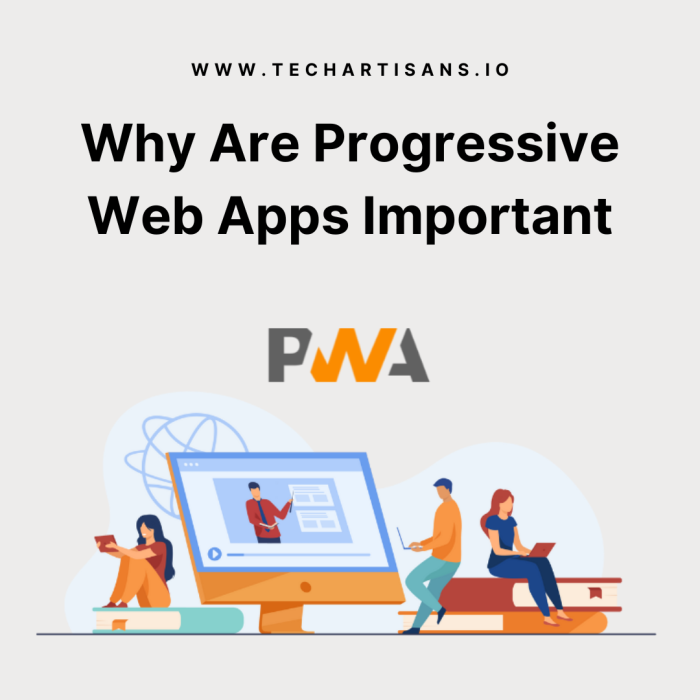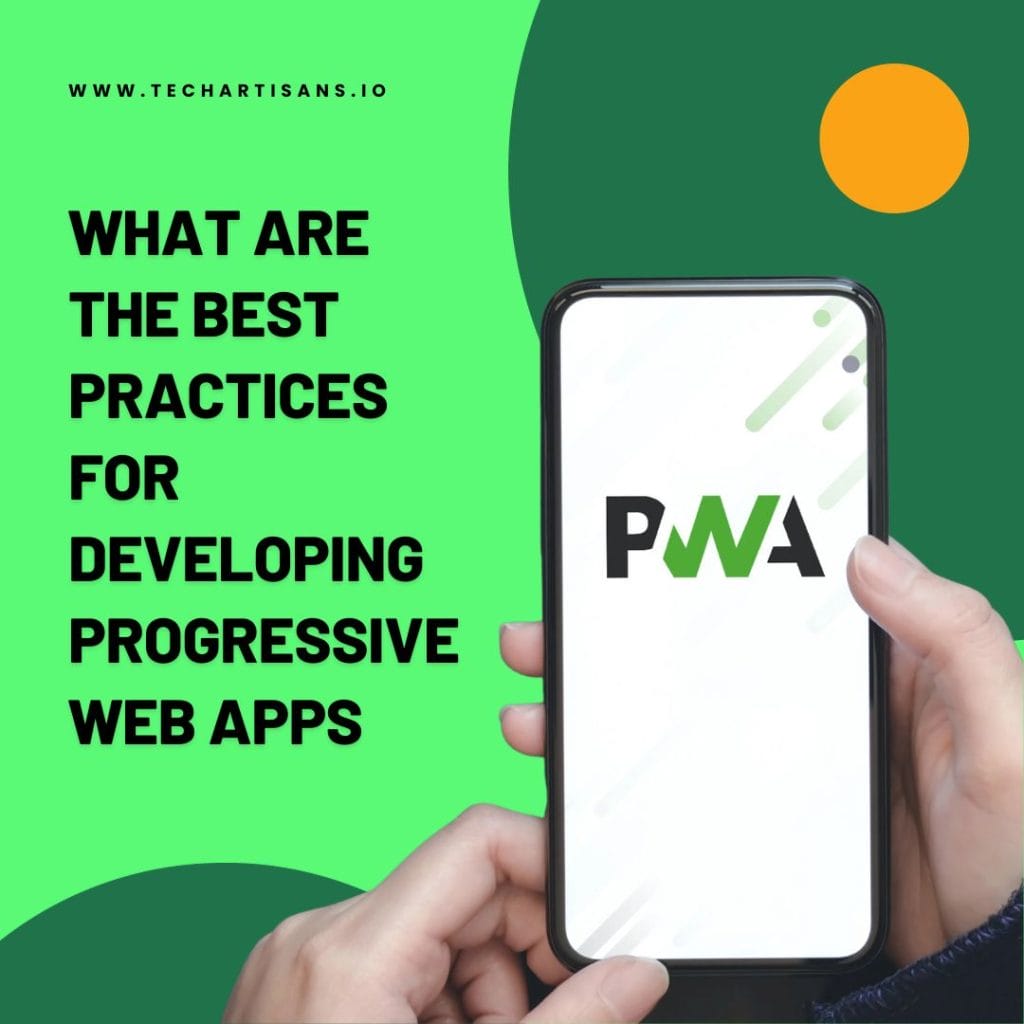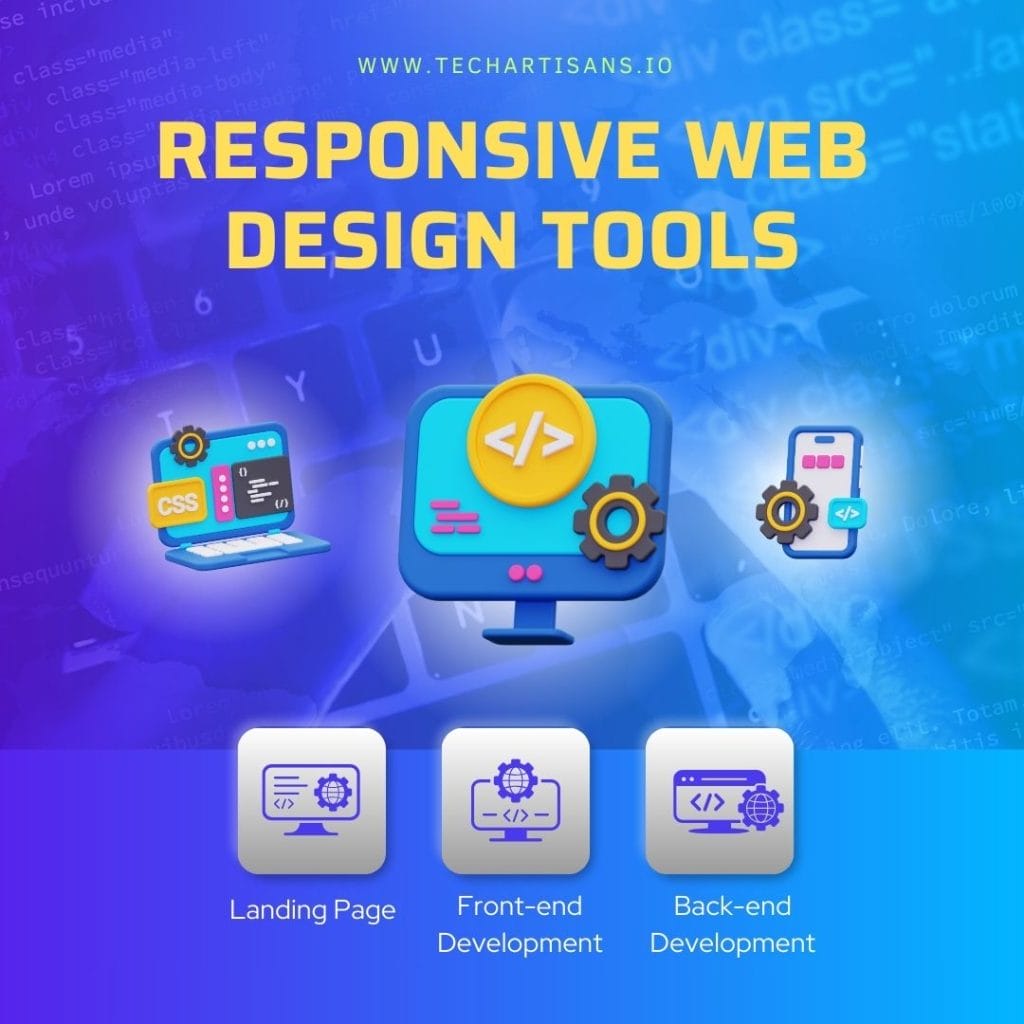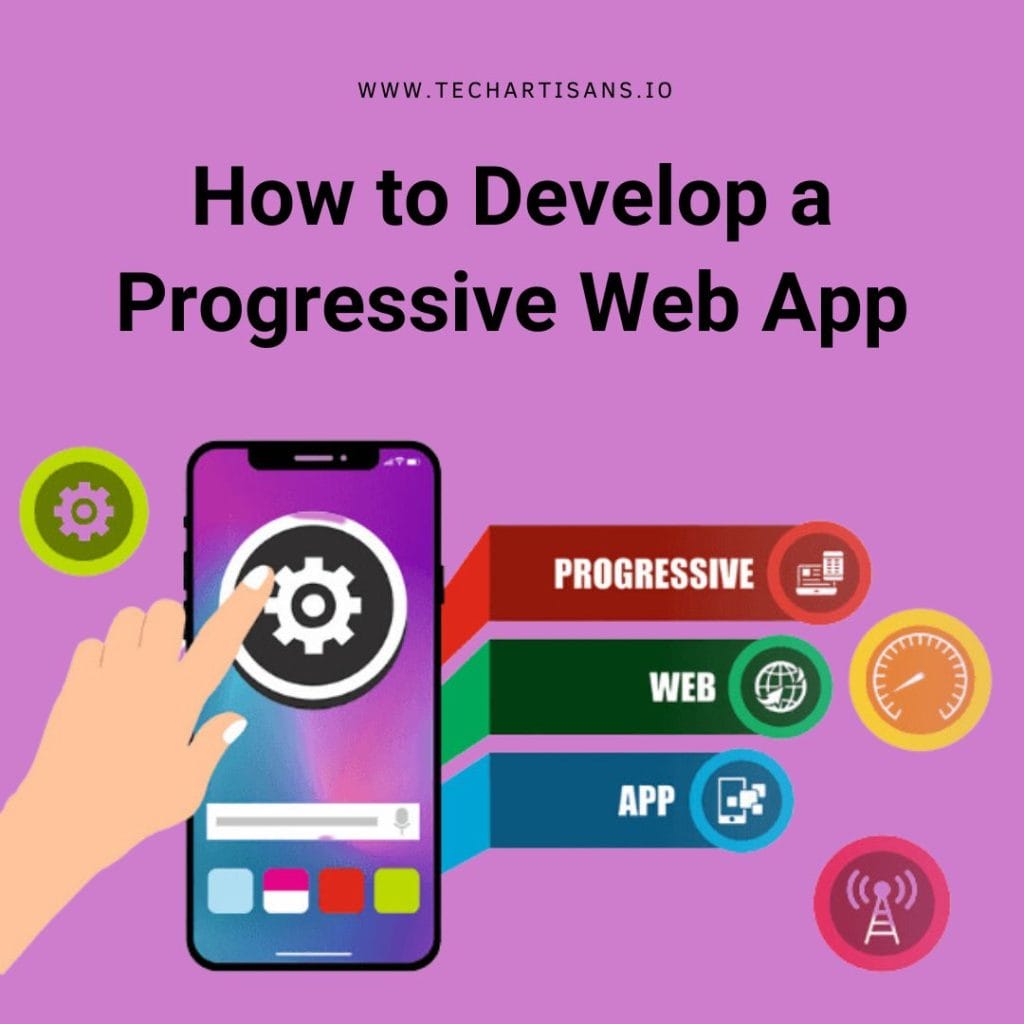Progressive Web Apps (PWAs) have emerged as an impactful innovation in web development. A PWA is a hybrid of regular web pages and a mobile application. This blend offers a unique user experience that combines a web browser’s flexibility with a mobile app’s functionality. The shift to a mobile-first approach in web development has played a significant role in the rise of PWAs. Now, more than ever, users engage with online content via mobile devices.
Why Are Progressive Web Apps Important
Progressive Web Apps (PWAs) are crucial in today’s digital landscape. They provide an optimal, seamless, and interactive user experience on mobile platforms, making them a game-changer for small to medium-sized businesses seeking engagement and growth.
Understanding Web Apps
Web Apps, or Progressive Web Apps (PWAs), are web-based applications that mimic the behavior of native apps and run directly in a web browser. They offer user-friendly functionality and seamless navigation without downloading or installing.
Enhanced User Experience
The user experience is a critical determinant of the success of any digital product. Progressive Web Apps excel in this area by offering an enhanced user experience combining the best web and mobile applications.
Speed and Performance of PWAs
The speed and performance of Progressive Web Apps are some of their most attractive features. PWAs load quickly, even on slow network connections, ensuring uninterrupted access to online content. They also employ a technology known as “service workers” to cache an instance of the web app, which enables instant loading and smooth operation.
Offline Capabilities and Reliability
One remarkable feature of Progressive Web Apps is their offline capabilities. PWAs employ service worker scripts, enabling them to work offline or on low-quality networks. This means that users can access the app’s content without an internet connection, ensuring reliable performance under all network conditions. This reliability in service delivery builds user trust, enhancing the overall user experience.
Home Screen Accessibility and Ease of Use
Progressive Web Apps (PWAs) offer easy accessibility right from the home screen of a user’s device. Users can add the PWA to their home screen just like a native app, ensuring quick and easy access. Also, PWAs update themselves in the background. This ease of use and accessibility contribute significantly to the growing importance of PWAs for businesses.
Business Advantages of PWAs
Beyond enhancing user experience, Progressive Web Apps (PWAs) also present many notable business advantages. These benefits, from cost-effectiveness to improved conversion rates – underscore the importance of adopting PWAs in today’s digital landscape.
User Engagement and Conversion Rates
Progressive Web Apps (PWAs) boost user engagement with user-friendly interfaces, swift loading, and offline capabilities. They send personalized push notifications to re-engage users, and their ease of use increases business conversion rates.
Marketing and Communication Benefits
Progressive Web Apps (PWAs) facilitate direct customer communication through features like push notifications. PWAs enable businesses to send personalized messages, updates, and offers to users’ devices, strengthening customer engagement.
The superior user experience PWAs can enhance a brand’s image and reputation. PWAs enable businesses to reach a larger audience. This means businesses can reach users across all platforms without needing multiple versions of their apps.
Cost Savings and App Store Independence
PWAs are budget-friendly compared to traditional native apps. They use a single codebase for all devices, avoiding extra costs. PWAs avoid app store fees and rules, giving you faster updates and more control over the apps, enhancing financial and operational efficiencies of utilizing Progressive Web Apps in business strategies.
Technical Benefits for Developers
Progressive Web Apps (PWAs) offer tangible benefits to businesses and users and offer a wealth of technical advantages that make the development process more efficient and streamlined. Let’s delve into some of these technical benefits that make PWAs a preferred choice for developers.
Simplified Development with Common Web Standards
The development process of Progressive Web Apps (PWAs) is simplified, thanks to common web standards. Developers can utilize well-established languages like HTML, CSS, and JavaScript to build PWAs.
PWAs utilize the power of service workers, a script that the browser runs in the background. Developers can use service workers to manipulate network requests, manage cache efficiently, and handle push notifications.
Another aspect that simplifies the development process is responsive design principles. This ensures that the PWA fits any screen size, from desktops to tablets and smartphones, providing an app-like experience across all devices.
Cross-Platform Compatibility and Maintenance
Progressive Web Apps (PWAs) shine in their ability to deliver consistent user experiences across multiple platforms. This means they can run smoothly on any platform with a modern web browser – Windows, macOS, Android, or iOS. The cross-platform compatibility of PWAs significantly reduces the challenges and costs associated with maintaining separate versions of an app for different OS. Furthermore, the standardized nature of web technologies simplifies debugging and maintenance, as developers can utilize universal web tools and practices.
Security Advantages With HTTPS and Service Workers
Progressive Web Apps (PWAs) implement stringent security measures to ensure the safe handling of data. Using HTTPS, PWAs ensure all communications between the app and the server are encrypted, preventing data tampering, eavesdropping, or content forgery.
Moreover, using service workers in PWAs adds another layer of security. Service workers work on a separate thread, isolated from the main browser thread, reducing the risk of code injection attacks.
Real-World Success Stories
Explore how leading brands worldwide have utilized the power of Progressive Web Apps to enrich the user experience, drive engagement, and boost their business outcomes.
Case Study 1: Starbucks
Starbucks’ transition to a Progressive Web App (PWA) significantly boosted its customer engagement and conversion rates. By delivering an app-like user experience directly through the web, Starbucks’ PWA ensured seamless ordering online, even in areas with low connectivity. This strategic move led to an impressive doubling of their daily active users, and orders placed on the PWA were nearly equivalent to those placed on their desktop website.
Case Study 2: Pinterest
Pinterest, a popular visual discovery engine, also found immense success with its switch to a PWA. Previously, they faced low user engagement and conversion rates on their mobile web platform. However, after launching their PWA, they observed a remarkable 60% increase in core engagements and a 44% rise in user-generated ad revenue. Furthermore, the time users spent on the site significantly increased by 40%.
Future of Web Apps
As we look towards the future, it is clear that Progressive Web Apps (PWAs) are set to redefine the landscape of web applications, offering numerous benefits to businesses and users alike.
Future of Web Browsing and E-commerce: PWAs
PWAs will play a pivotal role in providing seamless, app-like experiences on the web, bypassing the need for app downloads. This translates to instant access for customers, a game-changer for e-commerce businesses looking to convert traffic into sales swiftly and smoothly. With PWAs, businesses can provide an immersive, full-screen experience with help from a web app manifest file. They can even re-engage users with web push notifications, making the shopping experience more personalized and customer-centric.
PWA Impact on User Expectations and Business Strategies
PWAs are reshaping both user expectations and business strategies. With their fast, engaging, and cross-platform capabilities, PWAs set new standards for web experiences. Users now expect app-like performance and accessibility, while businesses utilize PWAs to enhance user engagement and conversions, resulting in a significant shift in the digital landscape.
Conclusion
PWAs (Progressive Web Apps) offer an efficient, strong, and secure web experience that rivals native apps; PWAs are transforming the digital landscape. They are leveling the playing field for businesses of all sizes, making them an essential tool for modern businesses. It’s time to consider moving your digital strategy toward PWAs for business owners seeking to maximize engagement, improve security, and optimize cost efficiency.







